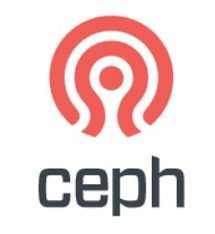
Penguin’s DeepData Integrates Red Hat Ceph Storage

Penguin Computing, the HPC, AI and enterprise data center vendor, is collaborating with IBM’s Red Hat unit and Seagate Technology to offer scalable storage options for data-driven applications. The software-defined approach is positioned as a complement to existing monolithic appliance storage that is proving unable to keep pace with big data.
The platform dubbed DeepData is a software-defined storage framework based on Red Hat Ceph Storage and Seagate’s Exos E 5U84 storage array. Along with software-based storage, the combination is built upon a “workload-optimized” server and storage blocks designed to scale for data-driven applications.
The result is a “turnkey enterprise solution,” said Kevin Tubbs, senior vice president of Penguin Computing’s Strategic Solutions Group.
The partners said this week the Ceph-based DeepData platform can be integrated with existing bare metal, container, virtual machine or cloud infrastructure. In releasing its latest version of its Ceph storage platform last year, Red Hat claimed a doubling of performance for write-intensive workloads.
The multi-exabyte, scalable storage platform is aimed at the growing quantity of unstructured data. Those big data sets must be organized and used to train machine learning models and other AI workloads that currently dominate enterprise data centers.
Unstructured data is growing at a rate of 30 to 60 percent annually, according to IT industry analyst Gartner,
For example, the partners cited the growing quantities of large, high-definition video and image files generated by Internet of Things and edge devices. Exponential growth of these and other unstructured data sets are used in machine learning workloads optimized using software-defined frameworks that can be tuned for specific I/O requirements.
“There is only so much scaling up you can do with a traditional storage appliance,” the HPC storage partners noted in a blog post. Software-defined storage approaches decouple hardware, software and software, enabling scaling and greater flexibility, they added.
The DeepDate platform features highly-available enterprise storage building blocks “with no single point of failure,” Penguin stressed. Along with distributed data protection that boosts accessibility, the storage platform provides both at-rest and end-to-end data encryption along with Active Directory, Lightweight Directory Access Protocol (LDAP) and Keystoneauthorization and authentication.
LDAP is a mechanism for interacting with directory servers. Keystone is an OpenStack identity service.
Seagate said it participated in testing aimed at optimizing the performance of the DeepData storage platform.
Recent items:
The Object (Store) of Your Desire
Red Hat Ceph 4 Automates Data Management
DeepCube Unveils Deep Learning Suite



























